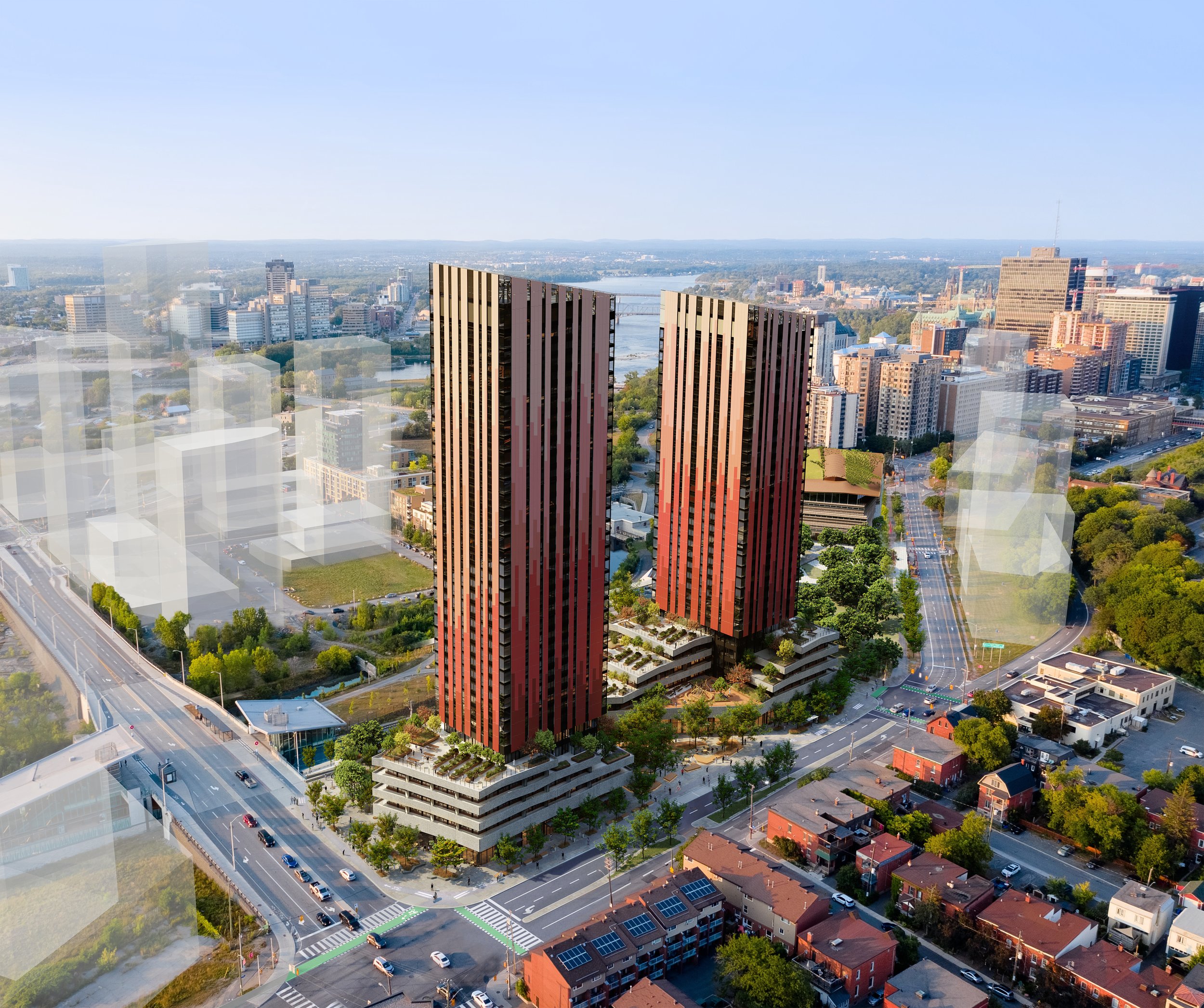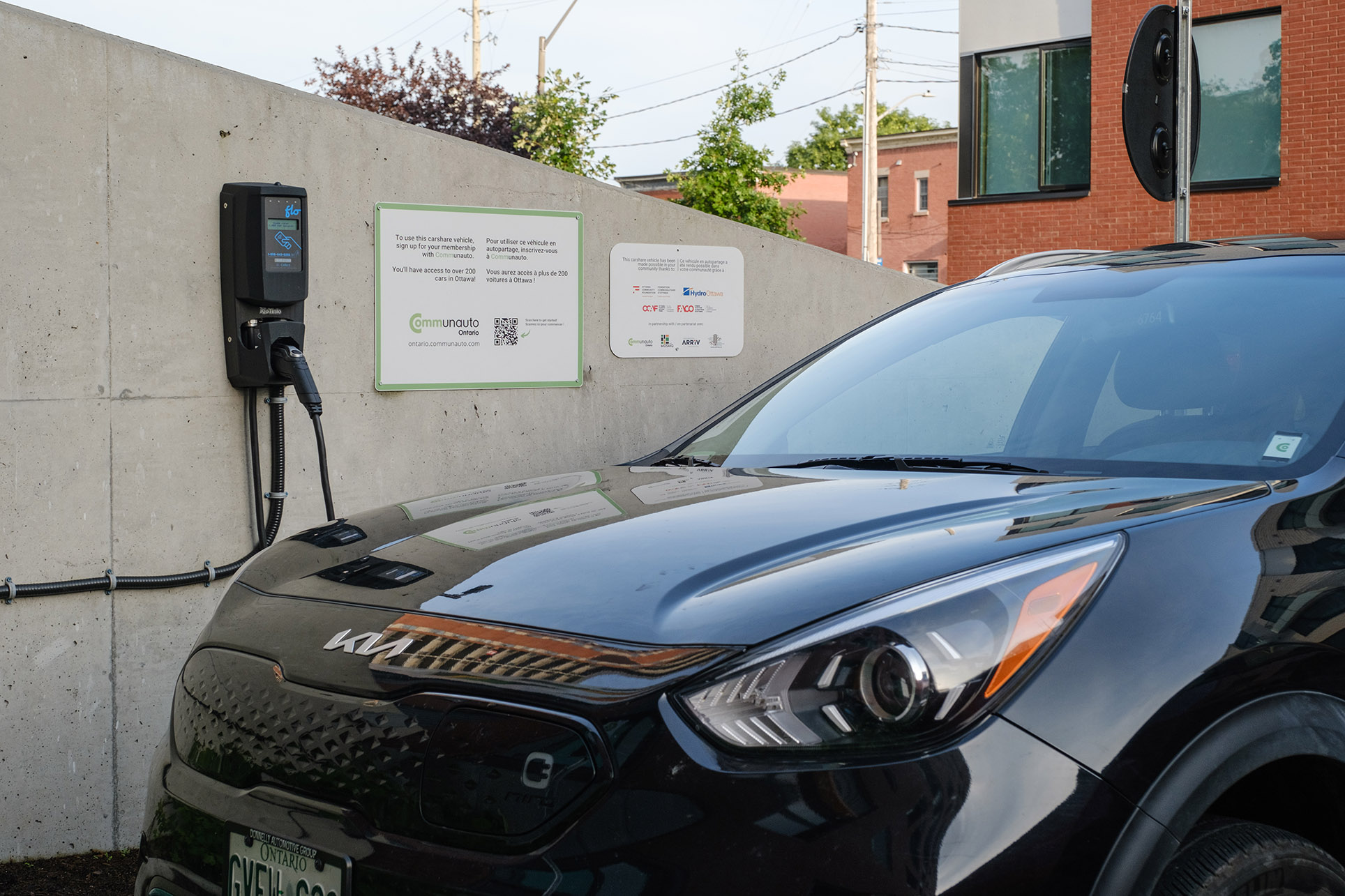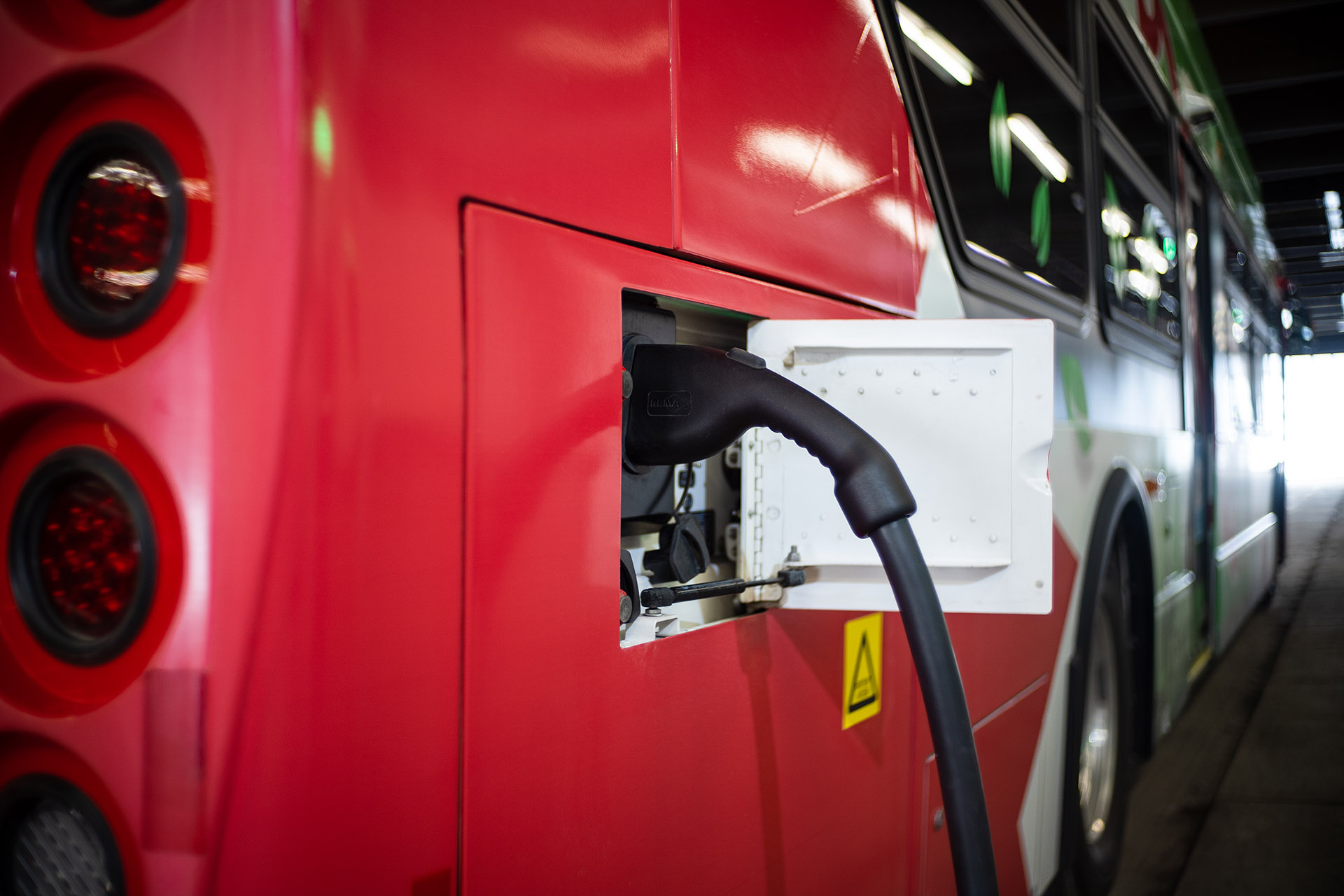Ottawa’s rapid growth and commitment to sustainability are increasing demands on the city’s energy infrastructure. To meet these challenges, innovative solutions are needed to enhance capacity while minimizing environmental impact. District energy systems (DES) efficiently distribute heating and cooling through interconnected networks, leveraging waste heat and reducing reliance on traditional energy sources. Hydro Ottawa Group plans to use this solution to improve access to clean energy and build a more resilient and sustainable city.
“A district energy system is multiple heating and cooling plants that you can connect together,” says Laurie Heuff, vice-president, system planning and asset management at Hydro Ottawa Limited, a Hydro Ottawa Group subsidiary. “Essentially it’s transferring excess energy to balance demand elsewhere, reducing the need for additional generation and reducing overall system strain.”
She explains that wasted heat from large buildings can heat water for developments nearby. “By connecting different areas using water pipes, we capture and redistribute heat,” Heuff explains. “Reusing existing energy instead of wasting it maximizes energy efficiency and avoids the need for additional heating fuel.”
Ottawa has a few district energy systems, including one at the Zibi community utility near LeBreton Flats.
“In that community, we have a heating and cooling system that heats both the Quebec and the Ontario side of the Ottawa River,” Heuff says. “It also leverages waste heat from the Kruger paper mill. There’s piping that connects Kruger to the Zibi central utility plant. Using heat-exchangers and water to carry the thermal energy to Zibi, there is sufficient heat for all of Zibi’s space and water heating. In summer, chillers are coupled to the Ottawa river to provide highly efficient cooling to the community. The central utility plant is a net-zero carbon utility because it leverages very clean electricity from the Quebec grid to do the majority of the energy production.”
In addition to Zibi being the region’s first zero carbon-emission community, this innovative system is the first in North America to use post-industrial waste heat recovery in a master-planned community.
“A lot of cleaner technologies need an economy of scale to make them work, so they’re too expensive for a one-building solution, but if you group 10 buildings together, the capital cost for the creative solution makes more sense and Zibi is a great example of that,” says Scott Demark, a partner with Theia Partners Inc., which helped co-ordinate the district energy system at Zibi. “We capture enough waste heat from Kruger to heat four million square feet of residential and office space there.”
Kruger receives payment from the Zibi community and fulfills its sustainability commitments through this arrangement.
“For this project, Hydro Ottawa Group connected with the developer to collaborate,” Demark says. “Hydro Ottawa brings a good honest brand to it and a lot of credibility to the offering since DES aren’t that common in Canada.”
Heuff sees the potential for expansion of these systems as “abundant”.
She notes that Hydro Ottawa Limited is “very good at managing energy infrastructure” and boasts one of the highest reliability levels of service in all of Ontario.
An upcoming project is at The Ottawa Hospital’s new Civic campus. The hospital’s central utility plant is the heart of the hospital’s heating and cooling equipment.
“We’re building it for the first phase of the hospital and we’re able to expand the actual equipment that’s in the building to handle the expansions that the hospital will go through over the coming years,” Heuff says. “We also have plans to then expand pipes off of the campus and to other areas that will be serviced by more commercial-style development. We’ve been speaking with developers on the Carling Avenue corridor where there’s a lot of high-rise development that’s going on as a result of the intensification from the light-rail train that’s going by there.”
As such, those buildings will be able to take advantage of some of the waste heat from the hospital’s central utility plant. The hospital’s system itself aims to be the most sustainable hospital energy system in Canada when it’s built.
For more than a century, Hydro Ottawa Group has built a foundation of expertise in energy distribution. They are now poised to leverage that deep-rooted knowledge to pioneer district energy solutions, which will bring unparalleled resilience and redundancy to Ottawa, extending benefits to commercial partners and ensuring maximum energy use. The utility is committed to applying its proven skills to create efficient, interconnected networks that eliminate waste and enhance reliability. This approach will bring robust, multi-sourced heating solutions to Ottawa’s critical infrastructure and beyond, demonstrating their dedication to maximizing energy potential for a sustainable future.


